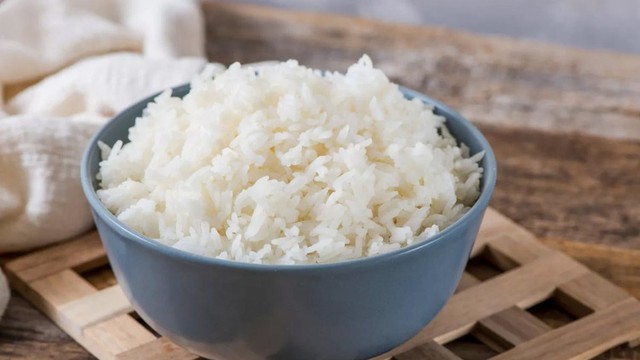Doctor points out mistakes to avoid and lessons from Japan
Mistakes to avoid when following a “special” diet
When we go to Google to search for keywords about diet, we will see there are countless different diets. However, according to nutritionists, a healthy diet should be a balanced one.
Assoc. Prof. Dr. Bui Thi NhungDean of the Department of School and Occupational Nutrition (National Institute of Nutrition) – said that nowadays, social networks have developed so there is a lot of information about nutrition.
One of the nutritional issues that many people are interested in is dieting to lose weight. However, scientific information about “special” diets is not much and is not really accurate.
Currently, there are many famous diets, such as Low-carb, Keto, Eat Clean, Mediterranean diet, etc.
Recently, the diet Eat Clean is very popular. When applying Eat Clean, eaters will use clean, less processed foods to retain natural nutritional ingredients.

Eat Clean diet, illustration.
Eat Clean is currently being called a very healthy diet. According to Assoc. Nhung, there are currently no official documents about this diet. Even now, there are some people who misunderstand Eat Clean as only drinking fruit juice, reducing starch intake, reducing fat, eating lean meat and lots of vegetables.
“Currently, there are too many weight loss diets online, but when I look at them, I see most of them are low-glucose diets (c.carbohydrates, carbohydrates) max. When reducing the amount of ccarbohydrates less than 40% – equivalent to about 130g of glucose per day – effects on the body, increasing the risk of illness and death (research published in the journal Lacent 2018)”, Assoc. Nhung shared.
Don’t let your body “hungry” for starch
The nutritionist said that glucose plays a very important role in the regulation of intestinal bacteria. Because the brain uses 25% of the total sugar of the body, not eating enough glucose will lead to dizziness, fatigue, affect sleep, stress, stress, muscle contraction.
Assoc.
According to experts, an unbalanced diet causes long-term damage. These injuries will not come immediately.

Need to add enough starch for the body, illustration
“We’ve had patients eat Low-carb long-term leading to disorders of blood lipid metabolism, blood sugar. Some elderly patients have terminal damage. Studies have shown that eating too much protein is not good for health.” Assoc. Nhung said.
An unbalanced diet will not be good for health, causing blood metabolic disorders, liver and kidney failure. Metabolic disorders or increased triglycerides will cause atherosclerosis, high blood pressure, cardiovascular disease, in cardiovascular patients will cause stroke. In the world, there have also been studies on how an unbalanced diet of protein, sugar, and fat affects health.
Lessons from Japan
Japan is a very famous country in nutrition, there are about 100 training schools in dietetic nutrition. Every year, hundreds of thousands of nutrition graduates graduate in Japan. And Japan is one of the countries with the highest life expectancy in the world because of its very scientific diet.
“The most remarkable feature in the way Japanese people eat at schools, hospitals, and homes… is a normal diet that balances groups of carbohydrates, fats, proteins, vitamins and minerals.” Assoc. Nhung said.
Also follow Dr. BS Nguyen Trong Hung, Head of the Department of Adult Nutrition Examination and Consulting (National Institute of Nutrition), when applying any diet, it is also necessary to ensure adequate carbohydrate needs for the body. According to the recommendations for adults, in 1 day a person needs to eat 130 – 150g of carbohydrates to nourish the body. For those who have a lot of mental and physical activity, we need to add carbohydrates.
A healthy meal needs to provide at least 50 grams of carbohydrates to nourish the body. If the diet reduces carbohydrates, increases the intake of fat, it will have negative effects on the body. Therefore, we need to add a balance and variety of substances.
A healthy diet helps prevent disease
Dietitians say unhealthy eating habits are one of the leading risk factors for mortality and the global burden of disease. Maintaining a healthy diet throughout life will help prevent malnutrition in all its forms, including overweight, obesity and non-communicable diseases (diabetes, heart disease, hypertension). , dyslipidemia, gout…)
Dr. BS. Huynh Nam Phuong, the National Institute of Nutrition, said that according to the 2018 definition of the World Health Organization, a healthy diet should have a lot of ripe fruits, green vegetables, whole grains, fiber, beans, limited ingredients such as sugar, sugary snacks and drinks, processed meats, and salt. Industrially produced saturated and trans fats need to be replaced with unsaturated fats.
A healthy diet provides the body with essential nutrients such as macronutrients, micronutrients and adequate energy, meeting the needs of each individual depending on nutritional status. nutrition, physiology and exercise.
As recommended by the World Health Organization
1. For adults: a healthy diet includes:
– Ripe fruits, green vegetables, beans, nuts, whole grains (brown rice, wheat, barley, unrefined corn)
– At least 400 grams of vegetables per day (excluding tubers such as potatoes, cassava and other starches)
– Free sugars should only account for less than 10% of the total daily energy intake. Free sugars are sugars added to foods or beverages by the manufacturer, during the preparation and processing of food/drinks, as well as natural sugars found in honey, honey, syrups, and water. Fresh fruit and juice concentrates.
Fat makes up less than 30% of the energy intake. Eat unsaturated (unsaturated) fats found in fish, avocados and nuts (sunflower seeds, soybeans, olives). The recommended percentage of saturated fat is less than 10% of total energy and trans fat is less than 1% of total energy.
– Eat less than 5 grams of salt (equivalent to one teaspoon) per day. It is recommended to use table salt with iodine added.
2. For young children, the nutritional advice is similar to that of adults, but it should be noted:
– In the first 2 years of a child’s life, proper nutrition will help develop optimal growth in both physical and intellectual. At the same time, good nutrition also reduces the risk of overweight, obesity and non-communicable diseases as children grow up.
Infants should be exclusively breastfed for the first 6 months and breastfed for up to 24 months or longer.
– When children turn 6 months old, along with breast milk, children need to be supplemented with foods that are diverse, sufficient in quantity, safe and nutritious. Sugar and salt should not be added to the infant’s complementary foods.
at Blogtuan.info – Source: cafebiz.vn – Read the original article here



